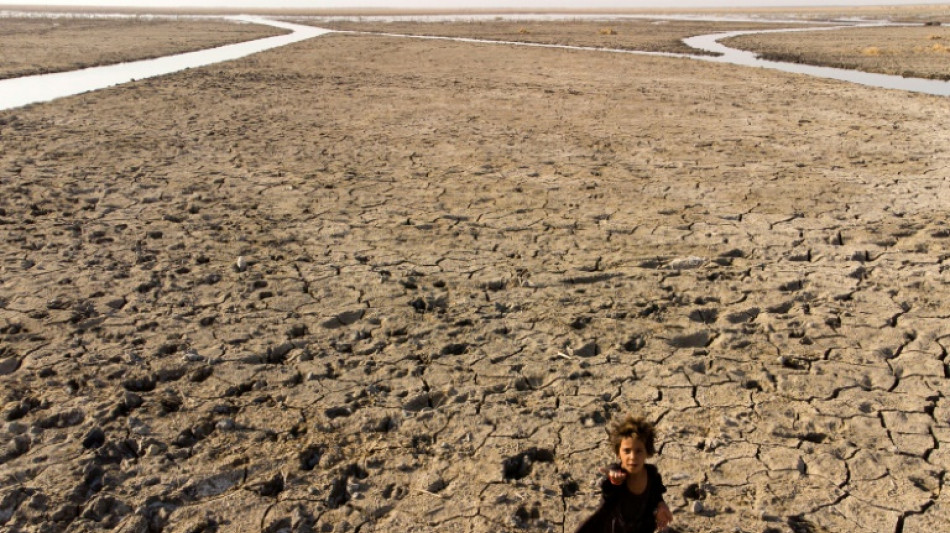
-
 Japan's Takaichi set to call February snap election: media
Japan's Takaichi set to call February snap election: media
-
Scientist wins 'Environment Nobel' for shedding light on hidden fungal networks
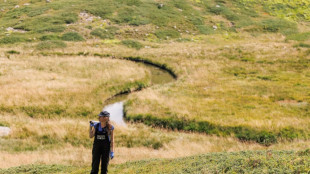
-
 From bricklayer to record-breaker: Brentford's Thiago eyes World Cup berth
From bricklayer to record-breaker: Brentford's Thiago eyes World Cup berth
-
Keys overcomes serve demons to win latest Australian Open warm-up

-
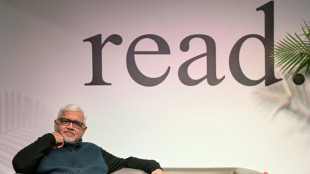 As world burns, India's Amitav Ghosh writes for the future
As world burns, India's Amitav Ghosh writes for the future
-
Actor Kiefer Sutherland arrested for assaulting ride-share driver

-
 Gilgeous-Alexander shines as Thunder halt Spurs losing streak
Gilgeous-Alexander shines as Thunder halt Spurs losing streak
-
West Bank Bedouin community driven out by Israeli settler violence
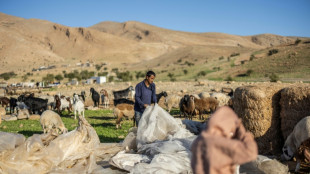
-
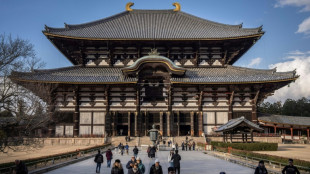 Asian markets mixed, Tokyo up on election speculation
Asian markets mixed, Tokyo up on election speculation
-
US official says Venezuela freeing Americans in 'important step'
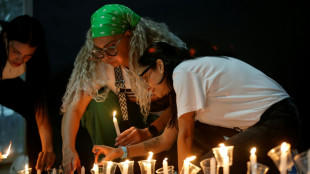
-
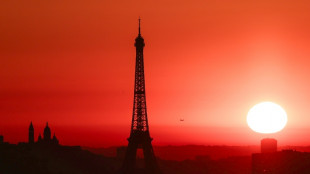 2025 was third hottest year on record: EU, US experts
2025 was third hottest year on record: EU, US experts
-
Japan, South Korea leaders drum up viral moment with K-pop jam

-
 LA28 organizers promise 'affordable' Olympics tickets
LA28 organizers promise 'affordable' Olympics tickets
-
K-pop heartthrobs BTS to kick off world tour in April

-
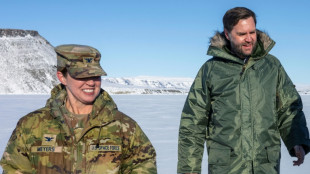 Danish foreign minister heads to White House for high-stakes Greenland talks
Danish foreign minister heads to White House for high-stakes Greenland talks
-
US allows Nvidia to send advanced AI chips to China with restrictions

-
 Sinner in way as Alcaraz targets career Grand Slam in Australia
Sinner in way as Alcaraz targets career Grand Slam in Australia
-
Rahm, Dechambeau, Smith snub PGA Tour offer to stay with LIV

-
 K-pop heartthrobs BTS to begin world tour from April
K-pop heartthrobs BTS to begin world tour from April
-
Boeing annual orders top Airbus for first time since 2018

-
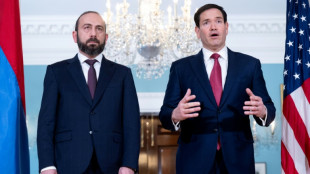 US to take three-quarter stake in Armenia corridor
US to take three-quarter stake in Armenia corridor
-
Semenyo an instant hit as Man City close on League Cup final

-
 Trump warns of 'very strong action' if Iran hangs protesters
Trump warns of 'very strong action' if Iran hangs protesters
-
Marseille put nine past sixth-tier Bayeux in French Cup

-
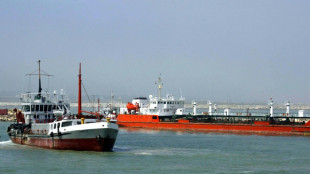 US stocks retreat from records as oil prices jump
US stocks retreat from records as oil prices jump
-
Dortmund outclass Bremen to tighten grip on second spot

-
 Shiffrin reasserts slalom domination ahead of Olympics with Flachau win
Shiffrin reasserts slalom domination ahead of Olympics with Flachau win
-
Fear vies with sorrow at funeral for Venezuelan political prisoner
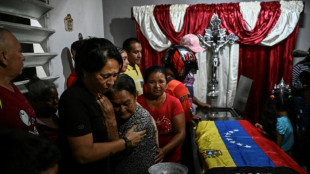
-
 Pittsburgh Steelers coach Tomlin resigns after 19 years: club
Pittsburgh Steelers coach Tomlin resigns after 19 years: club
-
Russell eager to face Scotland team-mates when Bath play Edinburgh

-
 Undav scores again as Stuttgart sink Frankfurt to go third
Undav scores again as Stuttgart sink Frankfurt to go third
-
Fuming French farmers camp out in Paris despite government pledges

-
 Man Utd appoint Carrick as manager to end of the season
Man Utd appoint Carrick as manager to end of the season
-
Russia strikes power plant, kills four in Ukraine barrage
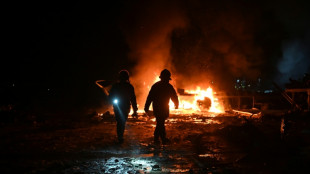
-
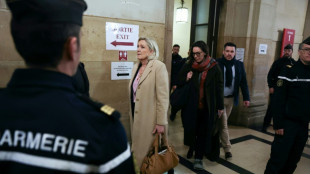 France's Le Pen says had 'no sense' of any offence as appeal trial opens
France's Le Pen says had 'no sense' of any offence as appeal trial opens
-
JPMorgan Chase reports mixed results as Dimon defends Fed chief

-
 Vingegaard targets first Giro while thirsting for third Tour title
Vingegaard targets first Giro while thirsting for third Tour title
-
US pushes forward trade enclave over Armenia

-
 Alpine release reserve driver Doohan ahead of F1 season
Alpine release reserve driver Doohan ahead of F1 season
-
Toulouse's Ntamack out of crunch Champions Cup match against Sale

-
 US takes aim at Muslim Brotherhood in Arab world
US takes aim at Muslim Brotherhood in Arab world
-
Gloucester sign Springbok World Cup-winner Kleyn

-
 Trump tells Iranians 'help on its way' as crackdown toll soars
Trump tells Iranians 'help on its way' as crackdown toll soars
-
Iran threatens death penalty for 'rioters' as concern grows for protester

-
 US ends protection for Somalis amid escalating migrant crackdown
US ends protection for Somalis amid escalating migrant crackdown
-
Oil prices surge following Trump's Iran tariff threat

-
 Fashion student, bodybuilder, footballer: the victims of Iran's crackdown
Fashion student, bodybuilder, footballer: the victims of Iran's crackdown
-
Trump tells Iranians to 'keep protesting', says 'help on its way'

-
 Italian Olympians 'insulted' by torch relay snub
Italian Olympians 'insulted' by torch relay snub
-
Davos braces for Trump's 'America First' onslaught


Iraq drought displaces 1,200 families in parched south
Some 1,200 Iraqi families have been forced out of southern marshes and farmlands over the past six months, a local official told AFP, as drought ravages swathes of the country.
The Mesopotamian Marshes, a UNESCO World Heritage site, have been battered by low rainfall and reduced flows in the Tigris and Euphrates rivers due to dams built upstream in Turkey and Iran.
Oil-rich Iraq, battered by decades of war, is also the world's fifth-most vulnerable country to some key effects of climate change, including water scarcity and desertification, say the United Nations.
Saleh Hadi, head of the agriculture authority in Dhi Qar province, said "about 1,200 families of buffalo herders and farmers in the marshes and other areas of the province were displaced from their homes do to water shortages".
The mass exodus began in April, Hadi said, adding that more than 2,000 buffaloes had died as a result of the drought.
"Half of the families have moved closer to the river in areas of north of Nasiriyah," the regional capital, he added, while others have relocated to central and southern provinces such as Babylon, Kut, Karbala and Basra.
According to Hadi, the Dhi Qar's Chibayish marshes and the village of Manar in the Hammar marshes were hit particularly hard, but families have also left Umm al-Wadaa and farming lands in Sayyed Dakhil, Suk al-Shuyukh and al-Islah.
Iraq's water resources minister last month said that 2022 has been "one of the driest years Iraq has seen since 1930," citing three consecutive years of low precipitation and reduced river flow.
This summer, vast swathes of wetland in Hawizah, along the border with Iran, as well as in the touristic Chibayish region have dried up.
The UN Food and Agriculture Organization noted in July "unprecedented low water levels" in the marshes, "one of the poorest regions in Iraq and one of the most affected by climate change".
The agency underlined the "disastrous impact" on more than 6,000 families living in that area who "are losing their buffaloes, their unique living asset".
B.Khalifa--SF-PST




